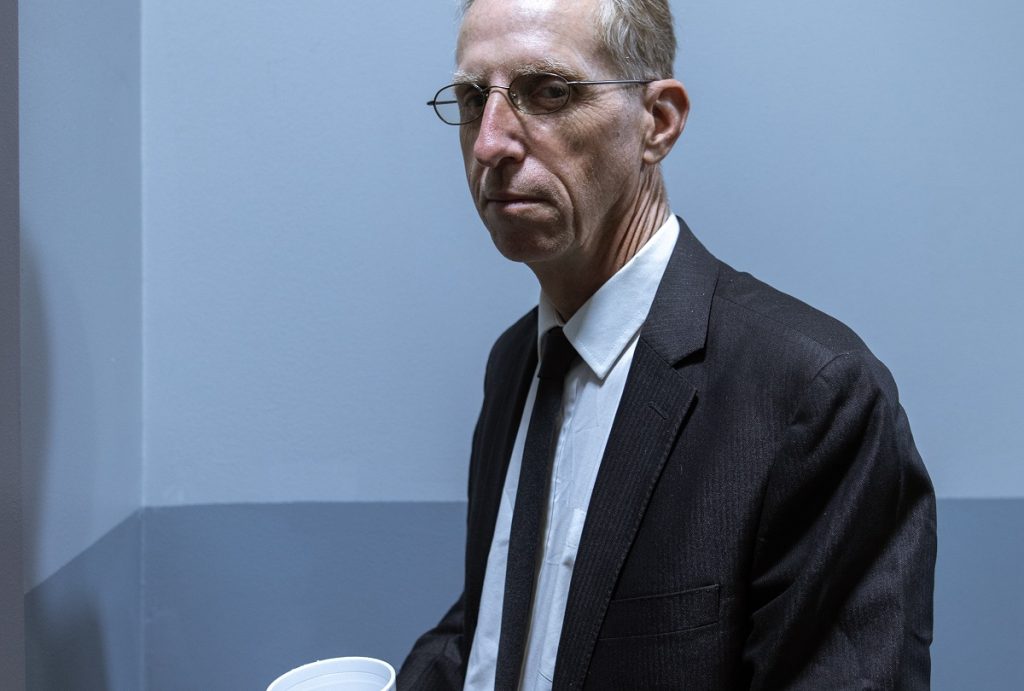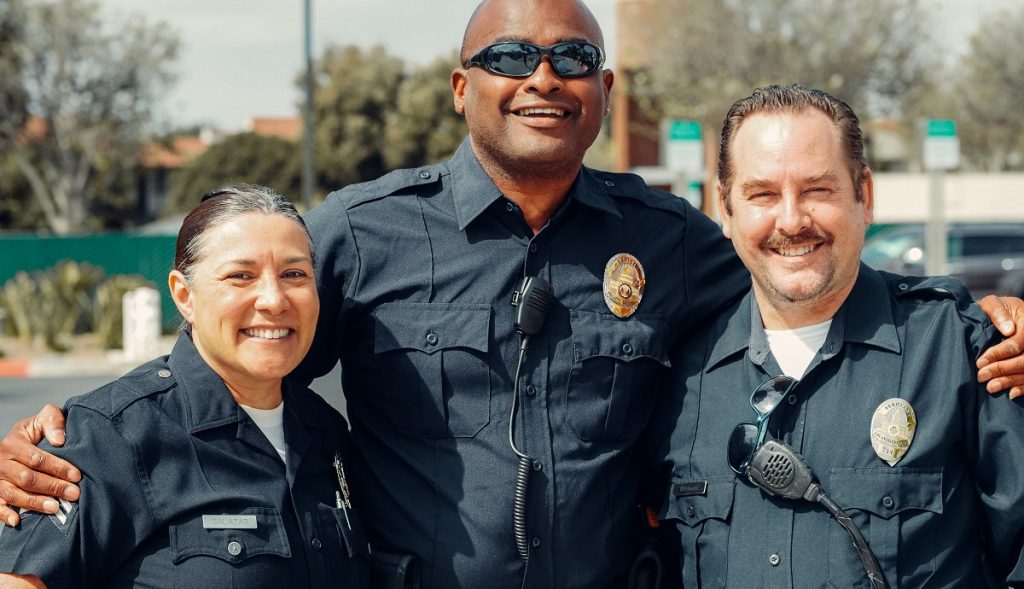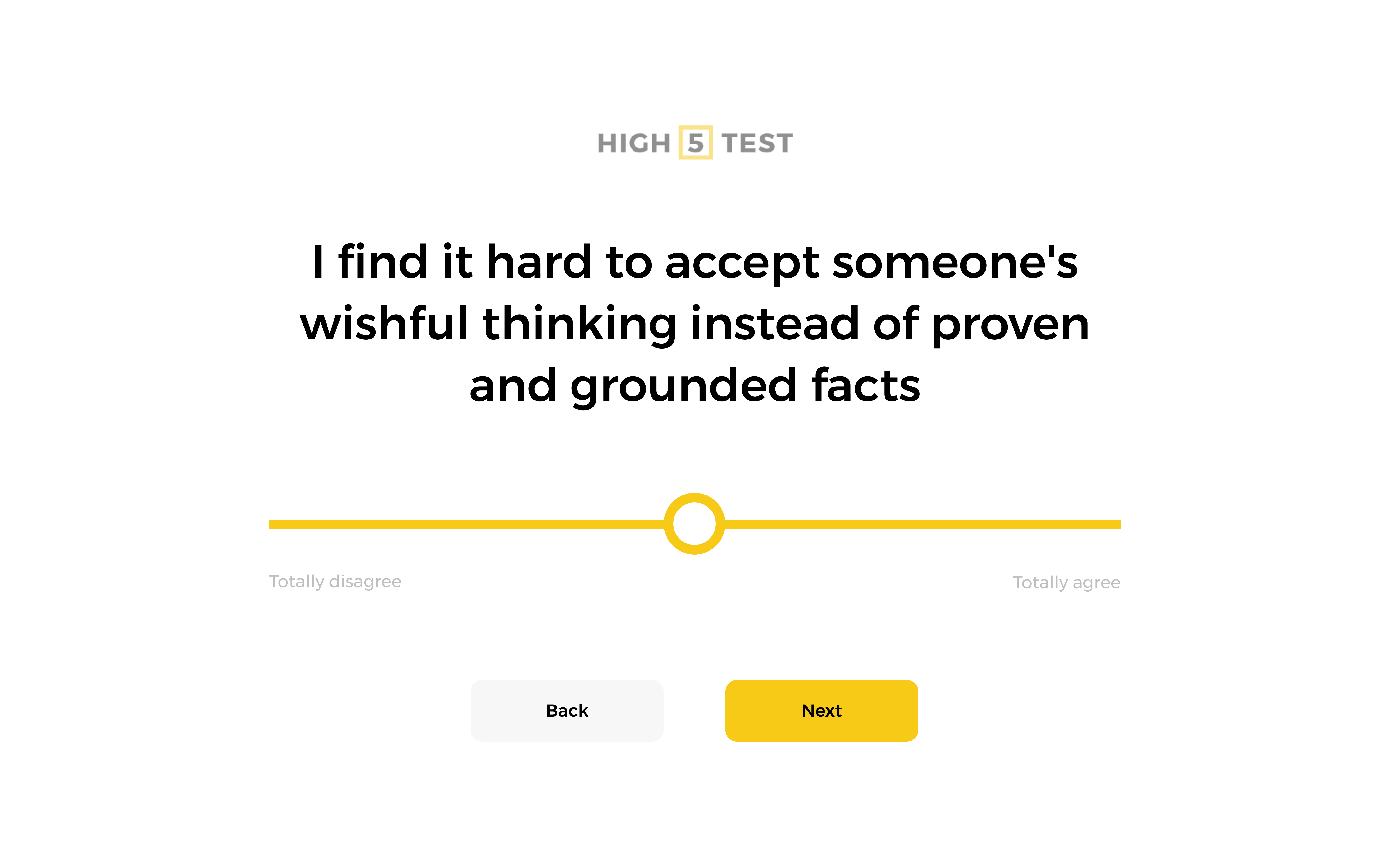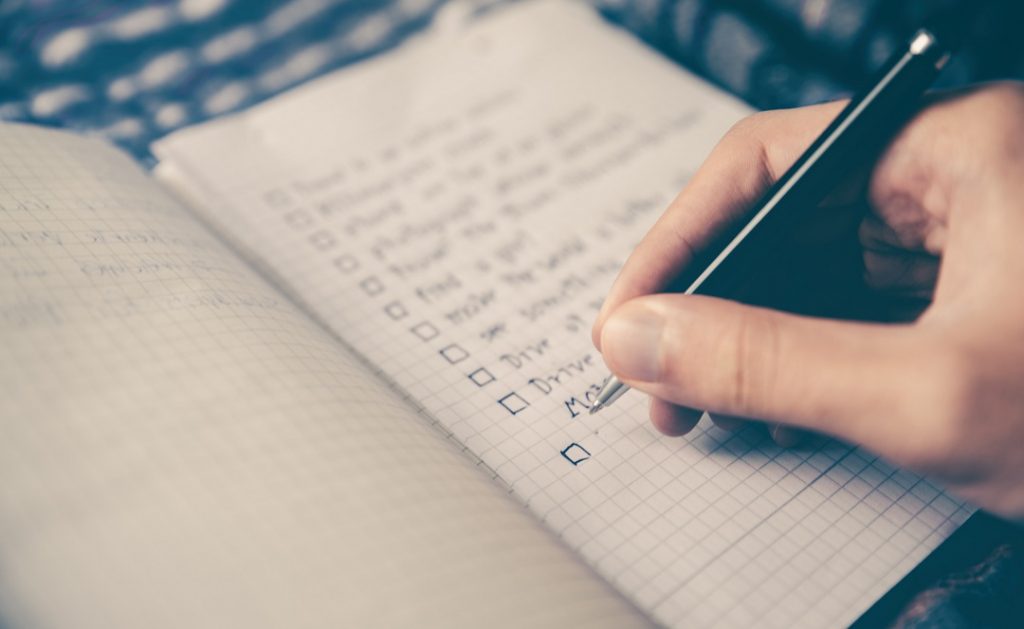Knowing what the top interview questions for police officer positions are can help you prepare for the interview and give you the edge when it comes to being hired. They also help you to understand the expectations of a police officer and the duties you will be expected to perform if hired.
![18 Police Officer Interview Questions and Sample Answers [2023]](https://high5test.com/wp-content/uploads/2023/01/18-Police-Officer-Interview-Questions-and-Sample-Answers-2023-1024x601.jpg)
This article will cover the most common police officer interview questions to help you prepare for your upcoming interview.
What skills are important for a police officer role?
Understanding the top questions asked during a police interview can help you become familiar with the skills and qualities that police forces look for when hiring officers. Here are some of the essential qualities and skills that police forces seek.
Communication skills
Effective verbal and written communications are crucial for police officers to interact with the public, colleagues, and superiors, ensuring information is conveyed clearly and precisely.
Critical thinking
Police officers must analyze situations quickly, make informed decisions, and anticipate the outcomes of their actions to protect public safety.
Problem-solving
Being able to assess complex situations, identify the root cause of problems, and devise practical solutions is vital in maintaining order and resolving conflicts.
Teamwork
Collaboration with fellow officers and other professionals is essential in law enforcement to ensure successful outcomes during investigations and operations.
Attention to detail
Careful observation and documentation are necessary for officers to detect small but critical details that can impact investigations and legal processes.
First aid
Having basic medical knowledge and the ability to provide immediate care in emergencies can save lives before professional medical help arrives.
Interpersonal communication
Building trust and rapport with community members and suspects alike requires strong interpersonal skills to handle sensitive or emotional situations effectively.
Empathy
Understanding and addressing the emotional and psychological needs of people involved in difficult situations fosters trust and promotes de-escalation.
Active listening
Paying full attention and understanding before responding enables officers to gather critical information and defuse tensions during interactions.
Community awareness
Familiarity with local issues, cultures, and challenges allows police officers to serve their communities effectively and tailor their approach to specific situations.
Conflict resolution
Police officers must skillfully manage disputes and disagreements, often acting as mediators to de-escalate potentially volatile situations.
Assertiveness
Being confident and firm without being aggressive helps officers enforce the law, maintain authority, and keep situations under control.
19 police officer job interview questions and answers
Let’s now explore some of the most common police officer interview questions and answers you may face during your next job interview.

1. What are your strengths and weaknesses?
How To Answer:
One of my main strengths is my ability to remain calm and composed in high-pressure situations, which I believe is crucial for a role in law enforcement. This strength enables me to think clearly, make sound decisions, and effectively communicate with my team and the public during emergencies.
On the other hand, I acknowledge that I tend to be overly critical of my performance. I’m actively working on this by seeking feedback and focusing on continuous learning and improvement, ensuring that my drive for perfection enhances rather than hinders my work.
Pro Tip From HIGH5
Discovering and leveraging your strengths can be a game changer in any profession, especially in demanding roles like police officers. The HIGH5 free strengths test is specifically designed to help you identify your top 5 strengths, providing insights into what you are naturally good at.
For instance, if your strengths include being a strategic thinker, this can be incredibly beneficial for planning and executing police operations effectively. If you excel in empathy, this strength can enhance your ability to communicate and connect with the community you serve, fostering trust and cooperation.
Adding strengths to your resume or CV can set you apart from other candidates. It allows you to showcase not just your qualifications, but also the unique qualities that you bring to the table. Highlighting your strengths during interviews can also provide concrete examples of how you can contribute to the team and the community as a police officer.
2. Can you provide me with a detailed account of your experience?
This is important because it shows the interviewer that you have solid experience as a police officer.
How To Answer:
In my current role as a police officer, I have responded to 911 calls and conducted investigations. I have also handled traffic control, written reports, and interacted with the public to ensure safety in my jurisdiction. Additionally, I have worked on numerous crime scenes and successfully apprehended suspects.
3. What made you want to do Criminal Justice? And how would your old boss describe you?
This is important because it shows that you are invested in law enforcement.
How To Answer:
When I was younger, I saw police officers intervening in dangerous situations and helping those unable to help themselves. This inspired me to pursue a career in criminal justice so that I could protect others and make an impact on my community. My former boss would describe me as an organized and reliable individual who is always willing to go the extra mile. I am a problem solver who takes the initiative and is eager to learn.
4. What makes you an effective law enforcement officer?
This is important because it shows that you understand the skills and qualities necessary to be a successful police officer.
How To Answer:
I believe my attention to detail, strong communication skills, and ability to remain calm under pressure make me an effective law enforcement officer. My analytical mindset helps me quickly identify problems, analyze evidence, search for solutions, and report accurately on investigations. Additionally, my dedication to upholding justice inspires others around me to do their part in keeping our community safe.
5. As an officer, what areas do you feel weakest in?
This is important because it shows that you are aware of your limitations and understand the importance of continuing to develop professionally.
How To Answer:
I know that every police officer requires continual training and education to stay up-to-date on procedures and laws. Although I am proficient in handling difficult situations, using reasonable force, and remaining professional under pressure, I can still improve my knowledge of legal codes and regulations. Thus, I plan to attend classes related to the field and continually work on improving my skillset as an officer.
6. What are the primary reasons you want to leave your current position?
This is important because it allows the interviewer to assess if you would be a good fit for the position.
How To Answer:
I am looking for an opportunity that will challenge my skills and allow me to take on more responsibility. I want to be part of a team where I can share my expertise and learn from others. Most importantly, I want to work in an environment where I can continue developing professionally and help make a positive difference in my community.
7. What kind of work setting would you feel most productive in?
This is important because it helps the interviewer gauge whether the work environment is suited to your personality and skills.
How To Answer:
I feel most productive in a collaborative team environment because it allows me to exchange ideas, learn from others, and get feedback on my work. I also thrive in an organized setting where I can plan tasks and have consistent deadlines that help me stay motivated and efficient.
8. What do you enjoy most about being a police officer?
This is important because it shows the interviewer your passion for the job.
How To Answer:
Being able to serve my community by protecting its citizens is what drives me as a police officer every day. Knowing that I am making a difference and helping make our community safer are the most rewarding aspects of this job.
9. What part of your job do you like the least?
This is important because it shows that you can critically analyze different aspects of the role and take ownership of them.
How To Answer:
I least enjoy dealing with paperwork, as it takes away from my time spent in the field protecting and serving citizens. However, I recognize its importance in terms of filing reports accurately and keeping records up-to-date. Thus, I try to stay organized and allocate enough time each day for completing administrative tasks.
10. What strategy do you use to de-stress and unwind when life gets overwhelming?
This is important because it tells the interviewer how well you practice self-care and establish boundaries.
How To Answer:
I recognize the importance of giving myself enough time to decompress after a long shift or stressful day. Thus, I usually start by taking some deep breaths and doing mindfulness exercises such as meditation or yoga. In addition, connecting with friends and family helps me unwind and get back into a good headspace.
11. What is your process for making decisions when you feel pressure?
This is important because it shows how well you can analyze a situation before making an informed decision.
How To Answer:
Whenever I feel pressured to make decisions, my priority is assessing the safety of those involved or the potential risks of my decision. After that, I consider what my experience and training have taught me about the situation, applicable laws or policies, and input from other authorities as needed. All this helps me reach a well-thought-out conclusion promptly.
12. How do you deal with or try to resolve disagreements?
This is important because it shows your ability to address conflicts effectively and respectfully.
How To Answer:
Whenever I disagree with another person or group, I strive to respect their opinions while maintaining an open dialogue. I believe it’s essential to stay calm and understanding as much as possible while listening intently without interruption so everyone can be heard. If a compromise can be made, I use my problem-solving skills to devise a solution that works for both parties.
13. If you were a police officer, would you give a speeding ticket to a family member?
This is key because it reveals your stance on impartiality and personal relationships.
How To Answer:
I would approach the situation with complete neutrality and professionalism. Even though it is a family member, the law must be respected, so if they were speeding, I would issue them a ticket for that violation.
14. What tips do you have for staying motivated during long work hours?
This is key because it shows how well you can stay focused and energized in challenging environments.
How To Answer:
When motivation starts to wane, I take short breaks throughout my shift to stretch or grab a quick snack. In addition, setting small goals or challenges throughout the day helps to break up monotonous tasks and keep me focused. Lastly, I will listen to upbeat music or catch up with my coworkers to stay motivated and get the job done.
15. Let’s say you and a coworker didn’t see eye to eye. What would you do?
This is key because it shows your ability to be diplomatic and handle interpersonal issues professionally.
How To Answer:
My priority in this situation would be to try and identify why we disagree and assess if any underlying issues could be resolved. If the resolution isn’t possible, I focus on finding common ground we can build from and respectfully expressing my perspective. In addition, I’d look for an outside mediator who can provide a neutral stance on the situation.
16. Given the current climate, what do you see as this community’s most significant law enforcement challenge?
This is key because it shows your knowledge of community issues and your ability to think critically about them.
How To Answer:
In my view, one of the most pressing issues facing law enforcement is understanding and responding to changing dynamics in communities across the nation. This includes awareness of different cultural perspectives that may affect how people interact with officers and developing a better system for allocating resources in areas that need them most. Additionally, I believe providing training specific to these challenges would be hugely beneficial to members of both law enforcement and the public.
17. What are your goals for becoming a police officer?
This is key because it shows your commitment and passion for the job.
How To Answer:
My goal as a police officer is to help create a safer, more equitable environment by protecting the rights of all individuals while enforcing laws fairly and justly. I strive to maintain positive relationships with members of my community and build trust between citizens and law enforcement. Ultimately, I want to ensure that our communities are safe places where everyone can feel secure.
18. What would you do if your boss issued a legal but unwanted order?
This is key because it reveals your understanding of protocol in following orders.
How To Answer:
As a law enforcement officer, I take orders from my superiors seriously and would follow the instructions given. I understand that my role is to enforce laws, not question them. However, I would speak with my boss privately to express any concerns or misgivings if the situation warranted it. This way, I can ensure that all orders are correctly understood and followed accordingly.
19. A lot of this job is dealing with paperwork. How do you stay on top of everything and ensure everything gets done promptly?
This is key because it demonstrates your organizational skills and ability to prioritize tasks.
How To Answer:
Staying organized and on top of paperwork is essential to my job, so I create a system that works best for me. I keep a detailed calendar to ensure all documents are completed by their due dates and use tools like task lists to break down larger projects into smaller chunks. Additionally, I utilize the help of other officers when necessary to stay productive and ensure everything gets done efficiently and accurately.
Questions for you to ask in a police officer job interview
Knowing which questions to ask during a police officer interview can help you gain valuable insight into the job and demonstrate your enthusiasm for the position.

Here are some questions you might consider asking:
When do you need this position filled?
This is an essential question because it will give you an idea of how quickly you must be prepared if you get the go-ahead.
To whom will I report?
Knowing who your point of contact is and which team members you may be working with daily is essential.
Can you describe your process for training new employees?
This question shows the interviewer that you are interested in understanding the expectations for new hires and the support available during this transition period.
How often do you review somebody’s performance?
Knowing how frequently officers can expect feedback from their supervisors can help applicants better understand what is expected from them once hired.
What qualities and experience would the perfect candidate for this role have?
Asking this question helps you to understand which skills and qualifications the employer is looking for in a candidate.
What is your favorite thing about serving this community?
This question reveals the interviewer’s dedication to their work and what makes being a police officer rewarding. This may also provide insight into why the position is available.
How To Prepare for a Police Job Interview
They say preparation is key, which couldn’t be more true when preparing for a police job interview. Here are some steps that you can take to make sure you’re ready. Preparation is key for a successful police officer interview. Begin by researching the department, understanding its values, and familiarizing yourself with the specific community it serves. Practice answering common interview questions, focusing on showcasing the skills and experiences that make you a strong candidate. Ensure you also prepare thoughtful questions to ask the interviewer, dress professionally, and be punctual.
Practice interview questions
Familiarizing yourself with commonly asked questions can help you sound confident and articulate during the interview. Additionally, thinking through how you might answer any difficult or unexpected questions can also prevent feeling caught off guard.
Prepare questions of your own
Having your questions prepared shows that you have researched and are genuinely interested in the position.
Dress professionally
Coming to an interview dressed professionally can make a lasting impression on the interviewer and show that you are serious about the role.
Be on time
Being punctual for your interview is essential, as this shows that you respect their time and value their organization.
Be courteous and respectful
This is especially important when interviewing for a job in law enforcement. Showing respect to your interviewer will demonstrate that you understand the importance of upholding professional conduct.
Use HIGH5 platform
Preparing for a police officer job interview requires a unique blend of showcasing your strengths while demonstrating your ability to contribute effectively to the law enforcement team and community. Utilizing the HIGH5 test can significantly aid in this preparation by identifying your natural talents and showing how these can be applied in the role you are applying for. Here are specific ways the HIGH5 features can assist in preparing for your police officer job interview:
Identify Your Unique Strengths: Before the interview, take the HIGH5 free strengths test to understand your top 5 strengths. This knowledge allows you to tailor your interview responses to highlight how your unique strengths make you an ideal candidate for a police officer role. For example, if “Problem-solving and “Empathy” are among your top strengths, you can discuss how to apply these strengths to de-escalate tense situations and connect with the community effectively.
Strengths-Based Examples: Prepare to give examples of past experiences where you utilized your strengths in challenging situations. If one of your strengths is “Courage,” you might share a story where you had to make a difficult decision under pressure, showcasing your ability to face challenges head-on, which is crucial for police work.
Communicate Effectively: Understanding your strengths allows you to communicate more confidently and effectively. For instance, if “Effective Communication” is one of your strengths, you can highlight your ability to clearly and respectfully convey information and instructions, an essential skill in law enforcement for interacting with the public and working with your team.
Team Collaboration: Knowing your strengths helps you understand how you best contribute to a team. The HIGH5 test provides insights into how you can complement your future colleagues in the police force. If your strengths include “Teamwork” and “Strategic Thinking,” you can discuss how you plan to contribute to planning and executing operations while fostering a supportive team environment.
Continuous Improvement: The HIGH5 test identifies your strengths and offers development insights. Discussing your willingness to leverage these insights for constant improvement demonstrates your commitment to personal and professional growth, a valued trait in law enforcement officers.
Leverage HIGH5’s Team Insights: If you’re already working in a team setting, encourage your current team to take the HIGH5 test. This can provide concrete examples of how you’ve successfully worked in a team by leveraging each other’s strengths, which you can share during your interview. It illustrates your proactive approach to team effectiveness and your ability to work well in the highly collaborative environment of law enforcement.
Police interview job questions FAQ
What type of questions are asked in a police interview?
Questions asked during a police interview can range from detailed inquiries about the incident in question to general questions about your criminal history, education, and work experience.
What not to say in a police interview?
You should always remain professional and respectful during a police interview. Avoid making any comments that could be seen as disrespectful or unprofessional, such as discussing controversial topics or using foul language.
What are the four values should a police officer have?
The four core values of a police officer are integrity, respect, fairness, and service. Police officers must adhere to these values at all times so that they can provide quality services in their communities. They are expected to uphold these values when dealing with all community members to maintain public trust and confidence in law enforcement.
What to wear to a police interview?
Business professional attire is recommended for a police interview. A suit or blazer with a tie for men, or a professional dress or suit for women, shows respect and seriousness.
How long are job interviews for police officers?
Police officer interviews typically last between 30 minutes to an hour. However, depending on the agency and the role, they can occasionally extend longer, especially during multi-phase hiring processes.
Conclusion
Acing a police interview is no easy task, but it can be done with the right amount of preparation and understanding of what to expect. With a sense of what police officers are looking for in candidates and a few tips on answering their questions effectively, you’ll have all the information you need to make a successful impression in your following police interview. By showing how your skills and experience match the job requirements, displaying honesty and integrity throughout the process, along keeping calm under pressure, you’ll be able to demonstrate why you would be an ideal candidate for the position.








